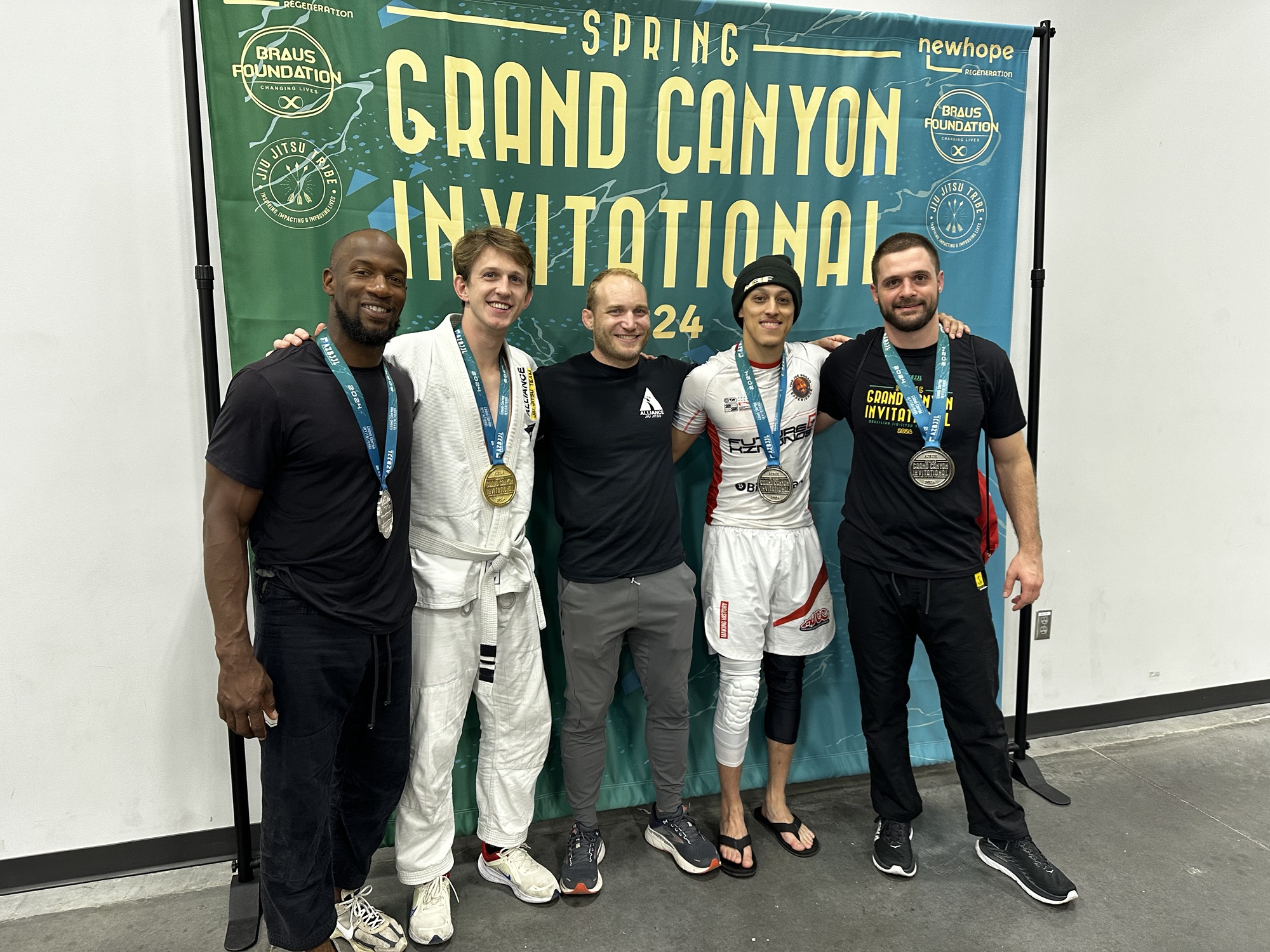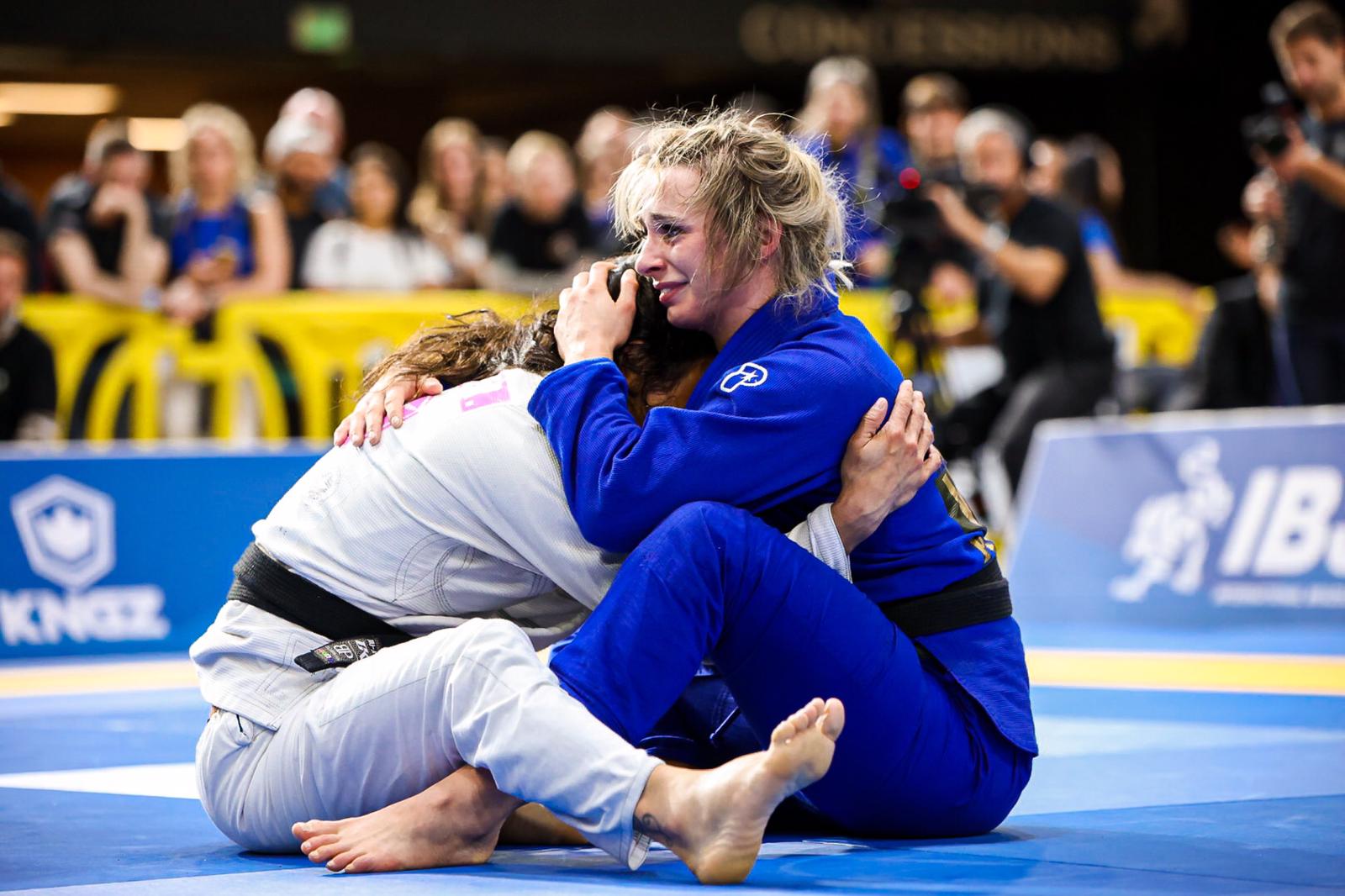
Cameron
Table of Contents
Tapping out is very common in the combat sports world. We are firm believers that you should be tapping out early and often when the stakes are low but maybe consider differently if you put yourself in high-stakes situations like competitions. Tapping out is a way to voluntarily end a match because your opponent got you into a position where they were threatening real injury or you experienced massive discomfort.
Training Jiu-Jitsu or MMA
Brazilian jiu-jitsu and MMA are the fastest-growing sports in the world right now. With the popularity of the UFC going exponential over the past couple of years, more people are venturing into the sport for themselves.
The explosion in popularity of BJJ in the United States is hard to go unnoticed. Everyone seems to know someone who trains the sport regularly and won’t shut up about its benefits! Those on the fence about doing the training themselves may find themselves doing a bit of research to know what they will get into. A key component to most combat-based martial arts is the meaning behind tapping out.
When you train or watch combat sports you may see someone tap their opponent a number of times and then the referee steps in to call the match, this is an indication of a tap out happening. Tapping out is very common and should be used regularly when the stakes are not high, by that we mean when you are just casually training.
When you are competing there is a bit of a different mindset that we like to adopt when it comes to tapping out but for the most part, you should always be tapping out early to prevent injury.
When you start training, chances are you don’t want to stop. The biggest thing that will stop people from reaching their goals or potential in their respective sports is an injury that could stem from either riding a submission too long or not taking recovery seriously. Here we will focus on the idea of not tapping out fast enough.
You should tap out when you find yourself in a dangerous situation, especially in a low-stakes situation like training. Having an injury that puts you out for weeks is not worth it. In a competitive situation with stakes, you should consider the risk and do your best to fight off a submission.
There is no shame in tapping out, it does not make you weak. It allows you to have longevity in a sport that you love. If you are training with a good partner, the chances you get hurt are low but accidents always happen. Better to be safe than sorry.
Tapping out is easy.
You can pat the person you are going live with twice or verbally yell the word “tap” to end the match. It’s important to know that you can use these two methods interchangeably because there will be times your hands may be tangled or a time when you can mutter a word (a choke is getting locked in).

Am I Weak For Tapping Out?
The quick answer to this question is no.
In all honesty, the people that end up lasting in the sport long term are those that tap out early and often when they are training. Most injuries will occur in training. You risk serious injury when you do not expect a choke or submission to come in and try to push through.
This is just not worth it in the long run especially when there is nothing on the line.

Competing in Jiu-Jitsu Tournaments
We are big believers that people should compete when they train in Brazilian Jiu-Jitsu. It is the best way to put your skills to the test and push yourself to new heights against people in your age range and with similar skill levels.
The only time you should be hesitant to tap out is when you are competing; even this can be a gray area conversation.
Tapping Out Early and Often
Our coach’s philosophy for longevity in the sport of jiu-jitsu is to tap early and to tap often. It is the easiest way to prevent injury or set yourself back on training. Other grappling-based Martial Arts like MMA are in a league of their own when talking about tapping out.
Tapping out is not a sign of weakness but should be used when you are training or run the real risk of getting hurt. Tapping out in a competitive match when something is actually on the line is an in-the-moment decision that gets made and can leave you with a painful feeling of inadequacy or embarrassment. Everyone that trains in combat sports has or will be submitted. The quicker you can come to terms with this the longer you will be able to train!
Preventing Injury
Getting injured is the worst and finding ways to prevent them at all costs will exponentially help with the growth of your game. The less time you spend time injured the more time you can spend training and perfecting your craft.
Preventing injury is a combination of these things:
- Tapping out when you need to
- Good Rest
- Proper Nutrition and eating a clean healthy diet
- Supplementation – CBD for pains, Fish oil for joints, Protein for faster recovery
What are the stakes?
Understanding what is at stake when you tap out is important. When you tap out you are saying that your opponent has got you in an uncomfortable spot and you want to give up the match.
If there are big things at stake, the tap-out may need to be a last resort. Some people train with the idea that they will not tap out no matter what. You run the serious risk of injury when you do not submit to anything that could put your body in harm’s way.
When competing, it is understandable to push the limits of your body and try to get out of bad spots if possible. If escape is out of the question, humble yourself and take the loss.

Let the Ego Go
In our opinion, there is no shame in getting tapped out. Those that are against someone tapping out may be putting their athletes or themselves at risk of serious long-term injury. Although we believe that you should push through adversity in matches and do your best to get out of the chokes of threatening positions, we also believe that long-term health is the most important part of combat sports.
Let the ego go in these situations. The ego is a good thing to have for fighters but also can cloud your vision of what is important at the moment. Protecting yourself and your body along the way is one of the most important aspects of training jiu-jitsu or any other combat-based martial art like MMA.
Tapping out is the best way to prevent long-term injuries from creeping into your life. The last thing you want is to run the risk of a tear or fracture just because we were hard-headed in the moment. Move on to the next round, learn the lessons that were presented in that match, and grow.
Discover the world of Brazilian-Jiu Jitsu: a holistic martial art, a sport, an approach to life.

